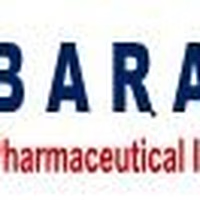Syria"s chemical sector reveals a paradox of potential amidst its environmental challenges. The sector, particularly in basic chemicals like ammonia, chlorine, and fertilizers, is poised for growth despite the concerning rise in pollutants and resource depletion. Notably, carbon dioxide emissions from industrial processes have decreased significantly by over 60% from 1990 levels, presenting an unexpected opportunity for industries to capitalize on cleaner production methods. However, the high water stress, with annual freshwater withdrawals surpassing 195% of internal resources, underscores a critical resource management issue that industry players must navigate. Syria"s economic indicators further indicate a decline in oil rents from 3. 83% to 1. 97% of GDP, suggesting a shift in focus towards more sustainable sectors. The chemicals market can leverage this shift, especially in areas demanding less energy-intensive production, such as detergents and pesticides, which can align with sustainable practices.
Moreover, the decline in renewable energy production, currently at 0%, highlights an untapped area for potential investment and innovation in energy-efficient chemical manufacturing. Globally, Syria"s chemicals market can draw comparisons to emerging markets that have successfully integrated sustainable practices with industrial growth. For instance, enhancing water productivity — currently at $1. 18 GDP per cubic meter — through modern irrigation and industrial technologies could position Syria as a competitive player in the regional chemicals trade. Aritral is an AI-driven B2B platform simplifying international trade in commodities and raw materials. Leveraging services like Product Listing and AI-Powered Marketing, businesses in Syria can efficiently connect with global partners, streamlining communication and sales processes. By utilizing Aritral’s platform, Syrian chemical enterprises can overcome market entry barriers, fostering growth in an environmentally and economically sustainable manner. "
-
 لاویر. منار آر آر 3 میاشتې مخکې
لاویر. منار آر آر 3 میاشتې مخکې سوریه
دایمي ویښتان رنګ او ویښتان میشونه او ویښتان ماسک
سوریه
دایمي ویښتان رنګ او ویښتان میشونه او ویښتان ماسک
ګرانو سړیو موږ دایمي ویښتان رنګ او ویښتان میشونه او ویښتان ماسک تولیدوو موږ د بهرنیو مثبت سوداګریز شراکت لپاره ډیر لیواله یو. سربیره پردې، موږ د کاسمی...تفصیلات
-
 بارکت فارماسیوتیکل انډسټریز ال. ال. سي. 19 میاشتې مخکې
بارکت فارماسیوتیکل انډسټریز ال. ال. سي. 19 میاشتې مخکې سوریه
انسانی درمل
سوریه
انسانی درمل
موږ د انسانی درملو تولیدونکی شرکت یو، د وارداتو شرکت یا توزیع کوونکي په لټه کې یو چې زموږ بشپړ شوي محصولات صادر کړو.تفصیلات



